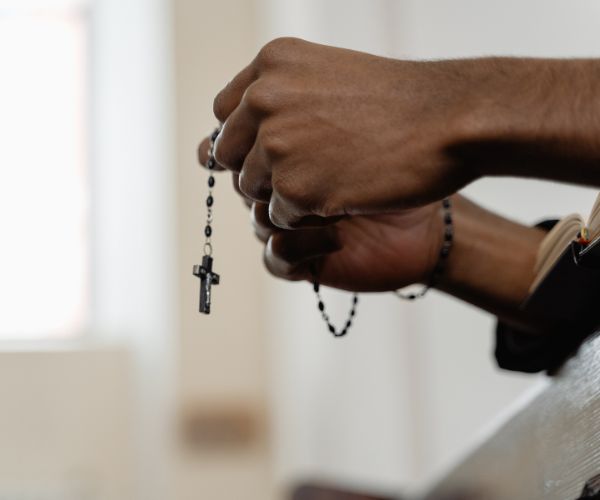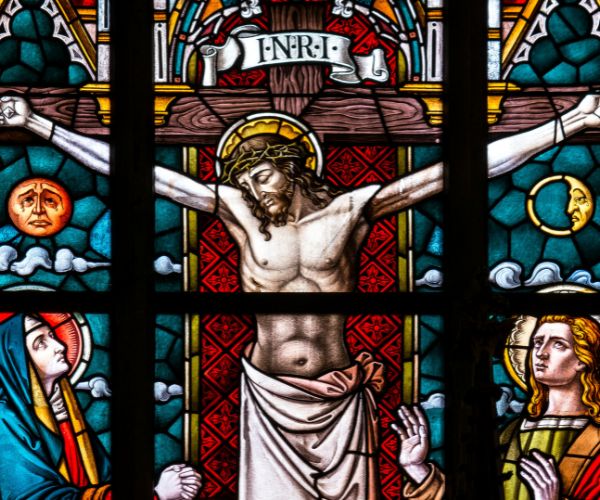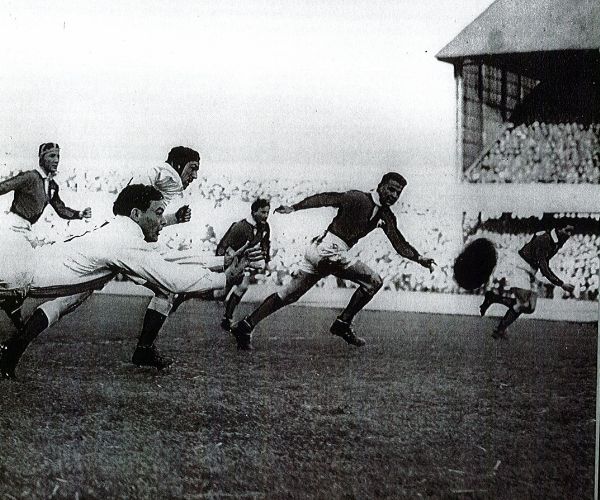
Mental Health and Ministry
Wednesday 21st May 2025Each year, the month of May is dedicated to raising awareness around mental health, and so we dive back into the world of the priesthood to find out a little more about how this demanding ministry can impact the wellbeing of our clergy.
Rev Dr Gerard Fieldhouse-Byrne is Executive Director of St Luke’s Centre, in Manchester – a branch of an international Catholic education and treatment facility that seeks to support priests, deacons, and religious to enjoy a healthy life and ministry through integrated psychological and spiritual treatment and education.
Fr Gerard began life at St Luke’s in 2005, after being approached by the Bishops’ Conference of England and Wales to explore what might be done nationally to provide psychological support and education for clergy and applicants to the priesthood and permanent diaconate.
With a MA degree in Clinical Social Work and a doctorate in Counselling and Clinical Therapy, alongside experience at Harvard Medical School and a post-doctoral internship at St Luke’s Centre in Maryland, Fr Gerard was the ideal candidate to spearhead the UK’s response to providing psychological support to clergy and religious.
The Centre facilitates assessment for candidates to the priesthood, the permanent diaconate, and religious life, it offers professional advice on support structures, provides education, and diocesan clergy days. It also offers counselling, psychotherapy, and spiritual support, support and education to seminarians, as well as clinical assessments when clergy and religious are in difficulty.
Fr Gerard explained: “I always use the term ‘MOT for a clinical assessment – like a car MOT. When the wheels begin to shake or fall off, what do you do? How do you respond to it? At St Luke’s Centre, we have a team of professionals who are able to help, understand, and work with the person and diocese or religious community, to assess and look and see, what are the issues? What might be done to help a person to be restored to health, wellness and balance and to return to active healthy ministry?”
The Smell of the Sheep
As shepherds of the Church, the weight of responsibility placed on the shoulders of our priests can be significant as they live through and share in the joys, tragedies, and challenges of their flock.
Fr Gerard said: “It’s a very varied ministry. It’s helpful, interesting, creative, and life-giving. Some of the stuff that we address and look at is really challenging for the man personally and so we have to take real care of ourselves emotionally, psychologically, spiritually.”

To reflect on this idea of accompaniment, Fr Gerard turns our attention to a beautiful message given to priests by Pope Francis at the start of his pontificate; the message that priests are to have the smell of the sheep about them.
Fr Gerard said: “That means a priest is to be fundamentally at one with the people of God, whom we serve. To understand them, to be in their world, to allow their world to impact us, to actually touch us and become part of our lives, that in a very real way is an informed, balanced, real way of understanding priesthood and what the ministry and the service of the priest is about.
“Understandably, all of that has a massive impact on the man, living out the truth of his humanity as a man called to live priesthood with his own foibles, his own ups and downs, joys and sadness, to be truly who he is called to be by God to live and serve in the Church.”
But whilst the Church demands much from all who lead lives of mission and vocation, Fr Gerard is eager to highlight the support and guidance that can be found from the teachings and guidance of Mother Church herself.
He explained: “The Catechism gives us a wonderful image about the Christian life for us all, and it’s the image of an apprenticeship.”
Fr Gerard continued to remind us that the Church teaches that all Christian life and mission is a daily working out and learning of skills and applying those skills to our own unique calling.
“And that’s a really important thing because it keeps us grounded. It keeps my feet on the ground knowing I don’t have all of the answers. I’m not meant to be perfect. I am learning the skills like an apprentice.”
Experts in humanity
Fr Gerard continued to explain that with this acknowledgment of learning and growth comes a humility that allows each of us to accept our limitations and effectively understand our strengths and weaknesses to be able to grow and live out our mission through healthy, psychologically-balanced lives.
Speaking more specifically about the priesthood, Fr Gerard said: “Pope St John Paul II said: ‘what the Church needs are men who are experts in their humanity so that they can preach the Gospel of life’.
“It’s a wonderful way of helping us see that God calls fleshed-out human beings – in all their fullness – to be priests.
“Each of us has our own needs and psychological foibles that everybody else has in the world. So, we have to be mindful of that and take it into account in a real way so that we can grow and live a healthy, balanced psychological life as a man call to be a priest.”
In this way, Fr Gerard pinpoints the importance of self-awareness in being effective servants of Church through a humanity that unites priests to their people and a self-knowledge that enables them to cope with all the challenges of the ministry.
In addition, an understanding that the priesthood is not an isolated, closed-off ministry is a key bolster to our clergy as Fr Gerard explains the importance of relationships as a vital support structure for those in ministry.
He said: “For anyone, if you don’t have a relationship with the most important person, in your life, then it’s not going to function. If you think of a marriage, if you don’t speak to your husband or wife, if you don’t invest in the relationship, it’s going to dry up. It ends.”
“It’s the same for a priest, so the most important building block of a healthy psychological and emotional life for a priest is that fundamental feeding and nurturing a personal relationship with God through prayer.”

Alongside a fruitful prayer life, Fr Gerard also stresses the importance of nurturing friendships with brother priests, relationships with friends and family, and working closely with their parishioners so all can share in building up God’s Kingdom.
He said: “We need our priests. They’re essential in the Church. But how do we nurture them? How do we support and encourage them?
“Each one of us, as St Paul says, we’re all part of the body of Christ with unique gifts and talents, and so we’re all invited to respond seriously to the invitation to be a unique connected member of the Church in a generous way with these gifts and talents.
“In this way, we can adopt a mutual building up and living out of parish life, supporting and encouraging our priests to carry out their ministry in a healthy, joyful way.”
Tagged | Vocations



